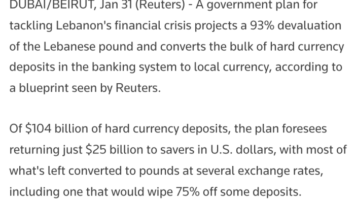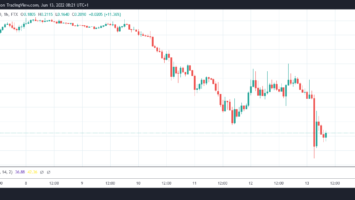
Israel’s central bank says the public’s adoption of the digital shekel is not expected “to materially affect the banking system.” The bank, however, warns that any issuance of such digital currency will likely result in a decline of the volume of the public’s deposits.
Increase in the Banking System’s Interest Expenses
Israel’s central bank, the Bank of Israel (BOI), has said its analysis of the proposed digital shekel’s possible impact on banking stability showed that the expected effect is not as significant as previously thought.
However, the bank’s analysis notes “the decline in the volume of the public’s deposits” held in banks following the issuance of digital shekel, would nonetheless lead to “some increase in the banking system’s interest expenses.” The same might also lead to an erosion of the banking system’s net profit, the BOI warned.
While the central bank said it has not yet made a decision to issue the central bank digital currency (CBDC), in its recently released statement, the BOI revealed it “is building an action plan for the potential issuance” of such a digital currency.
The statement also makes reference to a paper that was published by the BOI’s steering committee. In that paper, the committee examined the bank’s motivations for issuing the CBDC — also known as SHAKED — as well as the ramifications of such a digital currency on financial intermediation.
Erosion of Banks’ Liquidity Ratios
Meanwhile, the BOI statement also discusses some of the key findings from the steering committee’s May 2021 paper. The BOI statement notes:
Transferring a certain volume of money from the public’s deposits to SHAKED would have various effects on the balance sheets of the banking system and of the Bank of Israel. The banking system’s balance sheet would contract due to the decline in the ‘Public’s deposits’ item on the liabilities side and in the ‘Deposits at the Bank of Israel’ on the assets side.
The BOI adds that in the event the banking system attempts to maintain the credit portfolio to the public at levels prior to the CBDC launch, that development would “erode banks’ liquidity ratios to a certain extent.”
Besides looking at the potential impact that the CBDC might have on the banking system and the economy, the BOI said it will also “examine other issues that arise as part of the research and preparation toward a potential issuance of a digital shekel in the future.”
The central bank concludes its statement by reiterating that it has not made a decision to issue the digital shekel just yet.
What are your thoughts on this story? Tell us what you think in the comments section below.
Image Credits: Shutterstock, Pixabay, Wiki Commons, Roman Yanushevsky
Disclaimer: This article is for informational purposes only. It is not a direct offer or solicitation of an offer to buy or sell, or a recommendation or endorsement of any products, services, or companies. Bitcoin.com does not provide investment, tax, legal, or accounting advice. Neither the company nor the author is responsible, directly or indirectly, for any damage or loss caused or alleged to be caused by or in connection with the use of or reliance on any content, goods or services mentioned in this article.






















Comments (No)